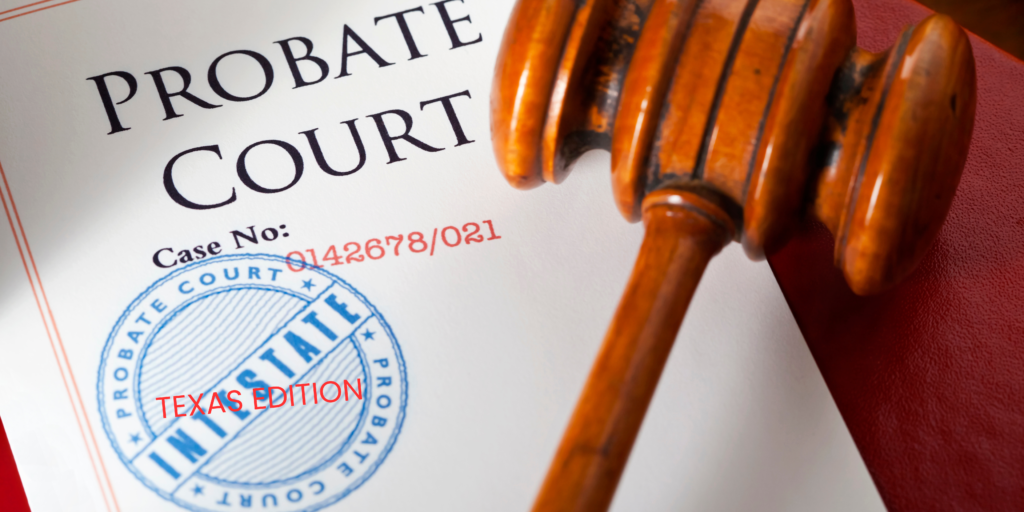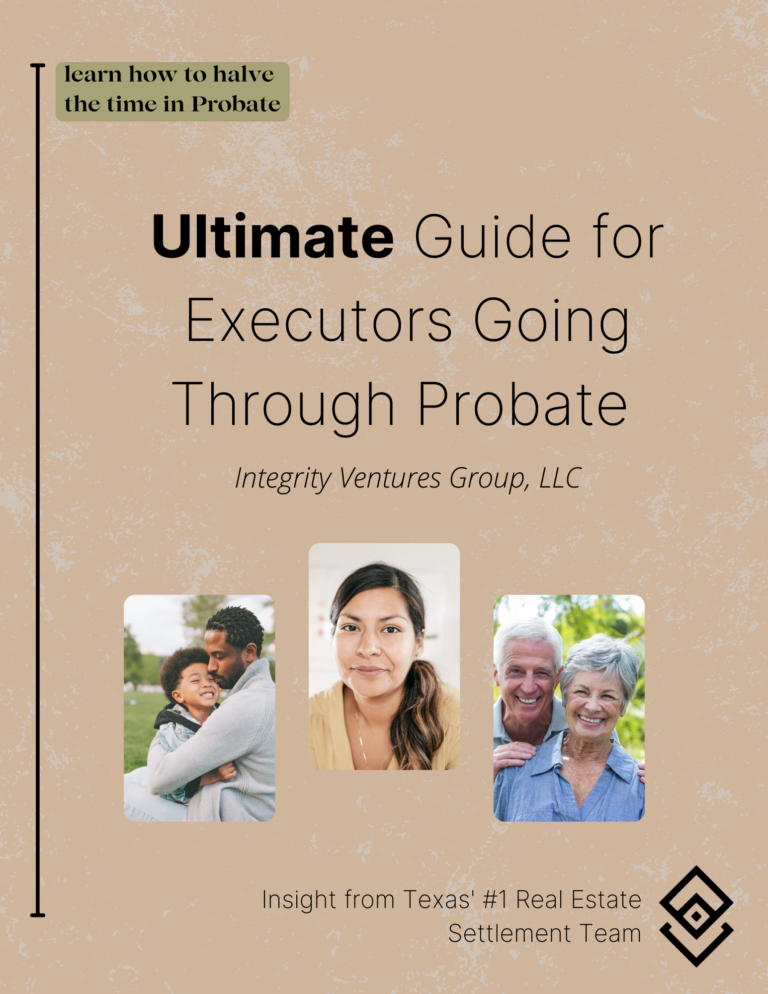do you want to cut your probate Process time in half?
Probate vs. Non-Probate Assets: What You Need to Know in Texas
disclaimer
Integrity Ventures Group asserts that it is not a licensed lawyer, and this article is intended solely for providing general guidance and information, and should not be considered as legal advice or a substitute for consulting with a qualified attorney. For any specific legal grievances related to personal probate cases, we strongly advise individuals to seek professional legal counsel and engage the services of a licensed attorney.
At Integrity Ventures Group, we pride ourselves on being the premier estate settlement firm in Texas. Our expertise lies in assisting families daily, helping them unravel the complexities of their probate proceedings alongside their attorneys. We would be honored to extend our knowledge to help guide you through your unique journey as well. Let’s Dive into: probate vs non-probate assets.
Introduction
The passing of a loved one brings forth numerous responsibilities, one of which is the management and distribution of the deceased’s estate. Understanding the distinction between probate and non-probate assets is crucial for anyone navigating the Texas probate process. This guide provides a comprehensive look into these two categories, offering Texans essential information to make the estate administration process smoother.
What Are Probate Assets?
Probate assets are properties and interests that belonged solely to the deceased and didn’t have a designated beneficiary or co-owner. They are subject to the Texas probate process, a legal proceeding supervised by a probate court to validate wills, settle debts, and distribute assets.
Common Types of Probate Assets
- Real Property: Homes or land owned solely by the deceased.
- Personal Property: Cars, furniture, and personal belongings.
- Financial Accounts: Bank accounts without designated beneficiaries.
- Investment Accounts: Stocks, bonds, and mutual funds in individual accounts.
- Business Interests: Sole proprietorships or shares in a partnership.
What Are Non-Probate Assets?
Non-probate assets bypass the probate process and are directly transferred to the named beneficiaries or co-owners. The terms for this transfer are usually dictated by the ownership documents or contract and not by a will or state law.
Common Types of Non-Probate Assets
- Jointly Owned Property: Real estate owned with rights of survivorship automatically passes to the surviving owner.
- Retirement Accounts: 401(k)s, IRAs, and other retirement accounts with designated beneficiaries.
- Life Insurance Policies: Proceeds go directly to the named beneficiary.
- Payable-on-Death Accounts: Bank accounts that transfer funds to a named beneficiary upon the account owner’s death.
- Trust Assets: Property held in a living trust is distributed according to the trust agreement.
Key Differences Between Probate and Non-Probate Assets in Texas
Speed of Transfer
- Probate Assets: Require court approval, making the distribution slower.
- Non-Probate Assets: Usually transfer immediately upon death, without court involvement.
Cost
- Probate Assets: The probate process can be costly, consuming both time and money in legal fees.
- Non-Probate Assets: Typically less expensive as they bypass the court system.
Privacy
- Probate Assets: Probate is a public proceeding, meaning the estate’s details become public record.
- Non-Probate Assets: Transfers remain private between the institution and the beneficiary.
Creditor Claims
- Probate Assets: Subject to claims by creditors.
- Non-Probate Assets: Generally not subject to creditor claims, unless directed by state law or the asset contract.

Why the Distinction Matters in Texas
Understanding the difference between probate and non-probate assets is crucial for estate planning and administration for several reasons:
-
Efficiency: Knowing which assets will go through probate can help in preparing for time and costs involved.
-
Estate Taxes: Texas doesn’t have a state estate tax, but federal estate taxes may still apply. The categorization of assets can affect the tax liability.
-
Asset Protection: Non-probate assets are generally more insulated from creditor claims.
-
Family Dynamics: Assets that bypass probate might reach beneficiaries more quickly, which could be important in situations where immediate financial support is needed.
Strategies to Convert Probate Assets to Non-Probate Assets
-
Joint Ownership: Adding a co-owner with rights of survivorship can convert a probate asset into a non-probate asset.
-
Trusts: Establishing a revocable living trust can help assets bypass probate while allowing you control over them during your lifetime.
-
Beneficiary Designations: Financial accounts often allow for payable-on-death designations, ensuring that they are non-probate assets.
Final Thoughts: Probate vs. Non-Probate Assets in Texas
Understanding the nuances of probate and non-probate assets is an essential step in effective estate planning in Texas. Not only does it allow for more efficient asset distribution, but it also provides better control over privacy, costs, and creditor protection. For those navigating the intricacies of the Texas probate system, a clear understanding of these asset types simplifies an otherwise complex process.
Disclaimer: This blog post is intended for informational purposes and should not be considered as legal or financial advice. For professional counsel, consult with an experienced estate planning attorney.
By offering a comprehensive guide on probate vs. non-probate assets in Texas, we aim to make the complicated realm of estate planning a bit more accessible. This knowledge is not just beneficial for those drafting a will, but also invaluable for family members who find themselves as executors or beneficiaries in a Texas probate proceeding.
FIND MORE HELPFUL ARTICLES LIKE THIS ONE
DOWNLOAD YOUR PROBATE CHECKLIST TODAY.
Become a part of the numerous executors who have already benefited from our free guide. Elevate your probate process with our complimentary probate checklist, designed to guide you step by step through the process of selling your real estate property today. Download it now and streamline your journey through probate.






